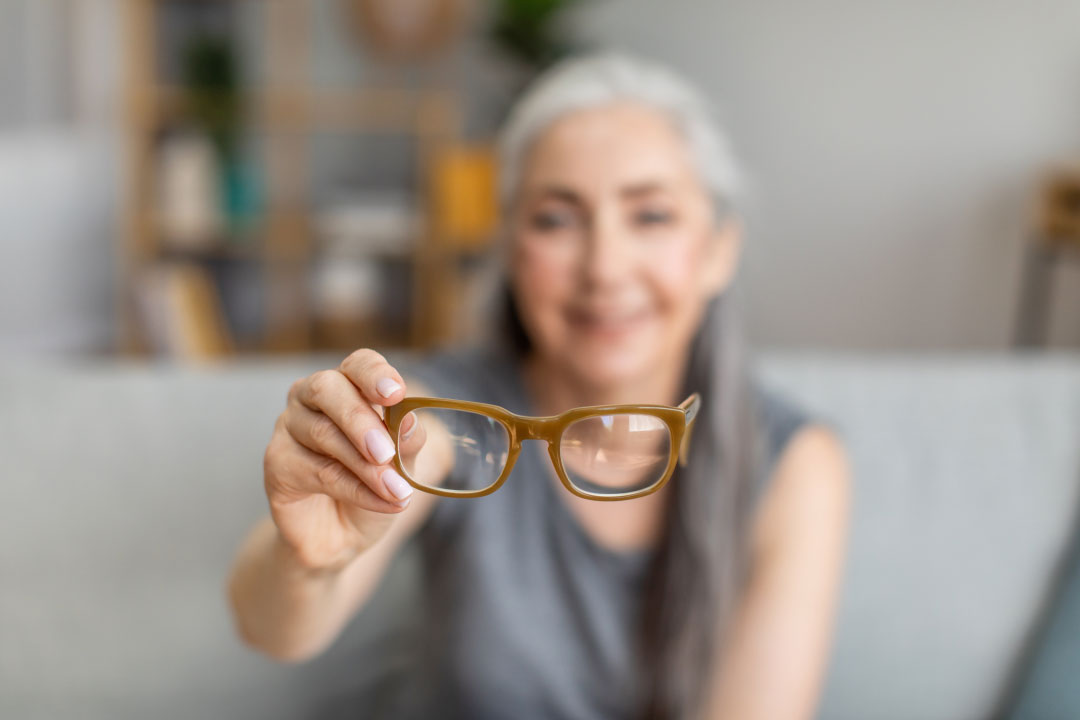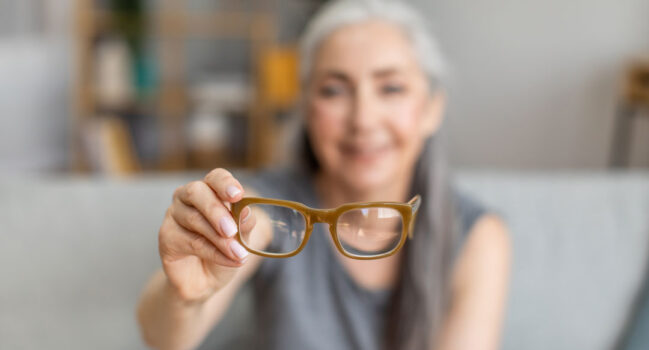
Cataracts and what to look for
We've all heard of cataracts, but do you know what they are? In this post from our head office team we take a closer look at what cataracts are and why you need to know the signs of cataract development in your eyes.
First off, what is a cataract?
Right behind the pupil in your eyes is one of the most important parts of your eye’s anatomy: the lenses.
Made up of water and proteins, these lenses bend and focus light to create sharp images. Your ability to see depends on these lenses being transparent and flexible.
As we age however, the protein in these lenses slowly begins to get stiff and coagulate. This makes the lenses cloudy, like you are looking through a frosty windowpane. That is what a cataract is.
Cataracts can happen in one or both eyes, but they don’t spread from one eye to the other. By the age of 80, most people either have cataracts or have had surgery for cataracts.
Symptoms
At first, you might not know you have cataracts. Over time, however, your vision gets dull, blurry, hazy, or less colourful. It becomes harder to see – and drive – at night. Cataracts don’t hurt, but they can cause discomfort because your eyes are more sensitive to light.
The good news is, vision correcting cataract surgery is one of the most common and safe procedures performed in Australia.
If you are looking out for cataracts, there are things you can do that will slow down their development.
Sunglasses for you and your children
The easiest, most inexpensive cataract-prevention method is – wear UV-blocking sunglasses.
Eye cataracts develop slowly and cumulatively, and, because of that, it is important to remember that the hours, weeks and years of unprotected exposure to UV rays of the sun add up.
When outdoors, be SunSmart: wear a hat, and slide on some UV-blocking sunglasses, like the ones you will find in our showroom.
Statistically, children get more UV exposure than adults. And because their eyes are still maturing, they are less effective than adult eyes at filtering out harmful effects of UV rays. Choose a pair of durable, comfortable sunglasses for your children and make wearing them a part of their routine. Then, set a good example by consistently wearing sunglasses yourself.
Self-care and cataracts
No matter what your age, there are definitely ways to prevent cataracts and slow the progression of cataracts.
Optometrists and doctors agree, what’s good for the body is good for the eyes. In other words, to keep your ability to focus, keep the focus on your overall health.
- Eat healthy.
Eat plenty of fruit and green leafy vegetables – especially spinach and broccoli.
- Stay fit.
There is a link between obesity and eye disease. If you are carrying too many extra kilos, the body’s immune system can get overwhelmed, which can harm lens proteins. Just 30 minutes a day of moderate exercise can make a difference.
- Don’t smoke.
Smoking doubles your risk of developing a cataract at an earlier age, and, the more you smoke, the greater the risk.
- Get regular eye check ups
Too many people wait too long between eye checks. Because cataracts grow slowly, it is hard to notice any changes in your vision. All adults should get an eye exam once every two years until age 65, and every year after that.
Our optometrists use a slit lamp microscope to examine your lenses and catch a developing cataract early. In the early stages of cataract, the lost eyesight can be helped with eyeglasses, magnifiers and stronger light.
Like the rest of your body, your eyes lenses change as you age. Although we can’t slow down time, everyone has the ability to make choices necessary to minimize the impact and delay the onset of cataracts.
Ready to book an appointment?
Online bookings available or call us on (07) 3463 0349.
This website does not provide medical advice. It is intended for informational purposes only. It is not a substitute for professional medical advice, diagnosis or treatment. Never ignore professional medical advice in seeking treatment. If you think you may have a medical emergency, immediately dial Triple 0 (000).

